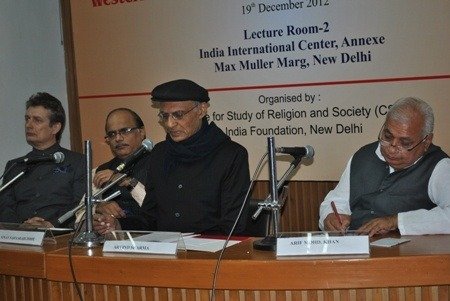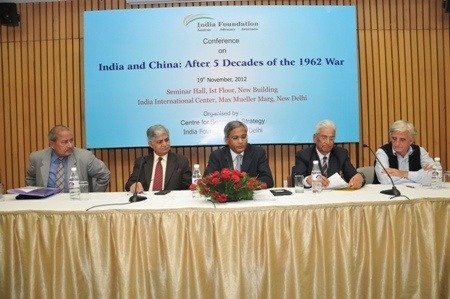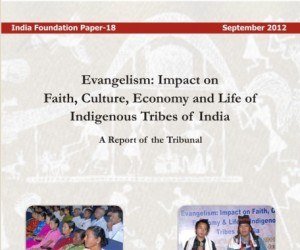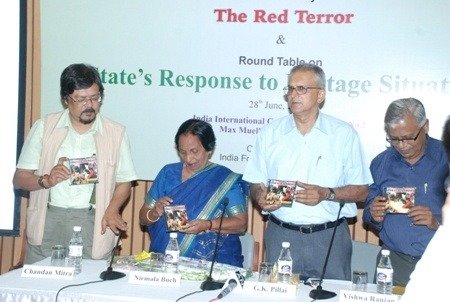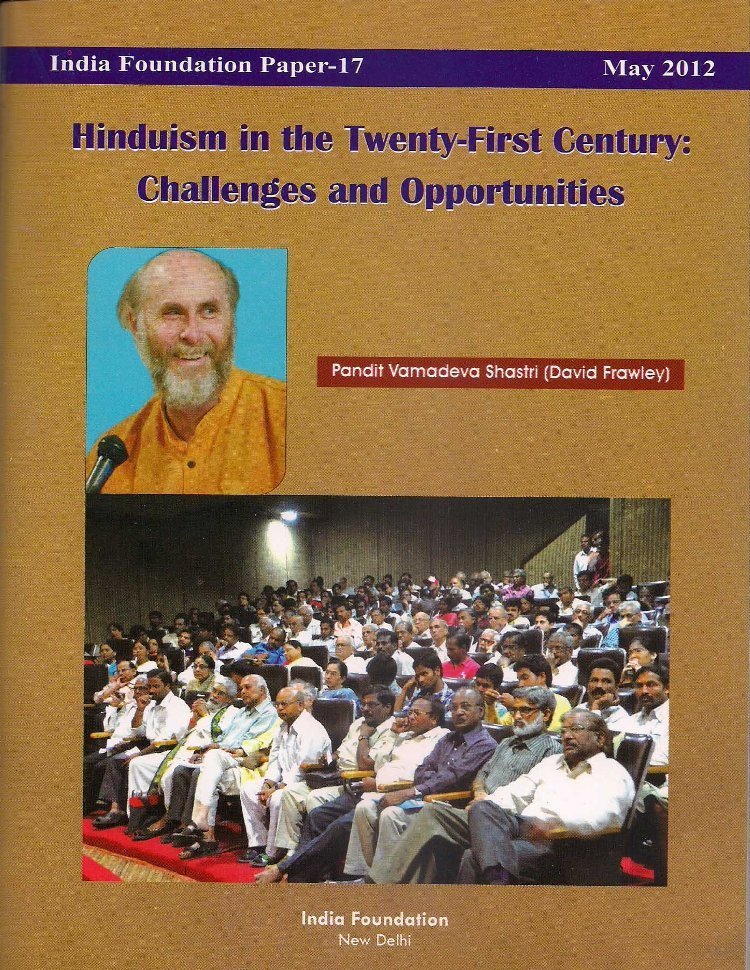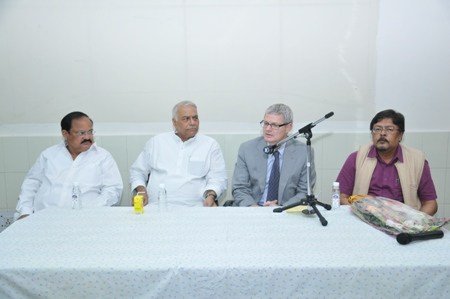A Round Table discussion on Western and Indic Perspectives of Human Rights had taken place on December 19, 2012 at the IIC Annexe, New Delhi with Prof. Arvind Sharma, McGill University, Canada as the key note speaker. He was joined by two discussants Mr. Come Carpentier and Mr. Arif Mohammad khan, who shared their views on Christian and Islamic perspectives on Human Rights respectively.



 The event opened with a general consensus as to how much has been discussed about the concept of Human Rights but as to how the notion was never really understood. Firstly, the welcome note by the Chair, Dr. Vinay Sahasrabuddhe highlighted how there exists a perception that the idea of Human Rights has been the creation of the West – India, or the East in general did not have such a notion in any context in their history.
The event opened with a general consensus as to how much has been discussed about the concept of Human Rights but as to how the notion was never really understood. Firstly, the welcome note by the Chair, Dr. Vinay Sahasrabuddhe highlighted how there exists a perception that the idea of Human Rights has been the creation of the West – India, or the East in general did not have such a notion in any context in their history.
Secondly, the Keynote Speaker, Prof. Arvind Sharma took stage next, and began by informing the gathering about how the concept of human rights from December 10, 1948 started evolving into 3 different stages: (a) civil and political rights, (b) social and economic rights, and (c) environmental rights. He went on to say that in the Indic context, and especially in Hindu thought there seems to be no single word for the notion of ‘Rights’, as such. There is however, the sense of ‘Duty’ that every individual is taught to live with. In the Indic context, he further elaborated, that one starts from the cosmic and comes down to the individual (from outward, in) as opposed to in the Western, where society is studied starting from the individual (from inward, out). This indicated the basic concept of a macro perspective versus a micro perspective. This trend therefore makes the Indic perspective rely heavily on ‘Duty’, which when followed meets similar goals as do ‘Rights’, he contended.
This was highlighted when an audience member supplied an anecdote to the gathering. He recalled what he was taught growing up – not harming anyone, and living by your own Dharma. This, he suggested met the same goals the Western concept of Human Rights, which tend to guarantee to each individual the right to his/her own person, opinions and speech, albeit with certain restrictions.
Thirdly, Mr. Come Carpentier brought to the gathering’s attention that most Rights Documents are essentially war documents. The French and the United States Declaration of Rights are both reactions to war, to safeguard the nation and its citizens. Therefore, he suggested, they are not really those that grant Rights per se, but ones that serve to merely protect one’s own nation against the many fall outs of war. He also touched upon how the Catholic Church would have been slightly apprehensive or uncomfortable with the declaration and/or the concept of Human Rights as it would have been at odds with their idea of ‘The Divine Right of Kings’. He appreciated what Prof Arvind Sharma had to say about ‘Dharma’ as Rights, and suggested that Human Rights as a concept had certain discrepancies within it, for example between freedom and liberty, and so on.
Lastly, Mr. Arif Mohammad Khan gave to the audience a wide range of anecdotal narratives. He spoke of incidents that pertained to Shri Shankaracharya Swamy and those of Maula Ali. He suggested that religions ought to be personal, and that one has to be cautious of any form of institutionalized religion; he said that all religions and their texts are fine in their entirety, but emphasized that as those who interpret it are only human, these interpretations are bound to be driven by various agendas. This, he said will affect the intrinsic inclination towards the principle of Human Rights that is prevalent in all religions of the world.
Concisely summing up all the speeches and ideas, Prof. Arvind Sharma stressed the importance of differentiating between Religion and Ideology. He suggested that in today’s scenario, these two concepts tend to be easily confused and substituted for each other. Expanding upon Mr. Khan’s point, Prof. Sharma talked of an Iranian scholar, Abdolkarim Souroush’s thesis titled Expansion and Contraction of Shari’a that separates religion per se, from religious knowledge. In the same vein he also suggested how the word ‘conversion’ can impose a problem, considering the ambiguity of language. On the one hand, it might mean exercising one’s right to change one’s religion out of one’s free will, but on the other hand it could also mean somebody’s right to ask/force one to convert. While the former does not need to be qualified, the latter has to be. Therefore, this fact is obfuscated as the word or term ‘conversion’ can be used in both contexts.
This is also similar to what Abdolkarim Souroush, the aforementioned scholar had referred to in distinguishing between religious ‘freedom’ versus religious ‘faith’. As was suggested by Souroush in an interview, “True believers must embrace their faith of their own free will – not because it was imposed, or inherited, or part of the dominant local culture. To become a believer under pressure or coercion isn’t true belief”1
Members of the audience interjected that in addition to ensuring that no community is marginalized, was the need for Secularism. Prof. Sharma responded to this by summing up that in the United States of America, one sees ‘truly’ neutral Secularism. However, he added, what is needed in India is ‘positive’ Secularism, for instance teaching the basics of all religions in Indian schools, as opposed to ‘negative’ Secularism of rejecting all religion and running away from it. The problems that the Indian societal fabric faces as regards Secular practices cannot be done away with by denying that religion is and will continue to remain a reality in this society. Prof. Sharma suggested that debates arising from being acquainted with basics of all religions that exist today in the Indian context will indeed be healthier than conflicts arising out of ignorance.
Reference:
- 1.Wright, Robin, Dreams and Shadows : the Future of the Middle East, Penguin Press, 2008, p.268

